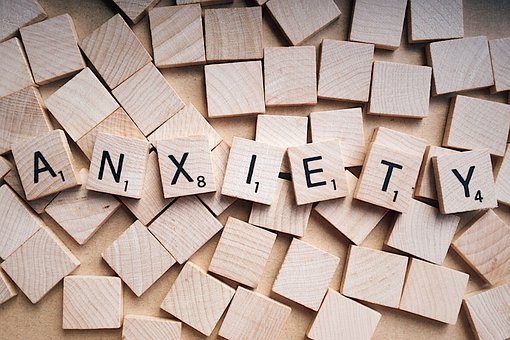Anxiety or stress can often lead to increased bowel movements, also known as “nervous poops” or “anxiety poops”. If this is something you experience, know that you are not alone.
On days when you’re struggling with anxiety, you may find yourself having to go to the washroom more frequently. This may happen before a big presentation or interview, or before an important day at school.
Anxiety often manifests itself in the form of gastrointestinal symptoms like diarrhea, abdominal pain, and shooting stomach pains.
Roughly one in three individuals who experience anxiety also report having anxiety-related diarrhea as a symptom.
Anxiety and diarrhea are often linked. People who have anxiety may experience diarrhea symptoms as a result. This is because anxiety can lead to an increase in stress hormones, which can in turn speed up the movement of the digestive system. Anxiety can also cause other issues that can lead to diarrhea, such as changes in eating habits and increased muscle tension.
The Stress Response
When we get anxious, it causes our body to go into the stress response. This means that a lot of different things happen in our body that give us an extra burst of energy and strength. This happens because our body thinks we could be in danger.
This reaction to a perceived threat is often referred to as the fight or flight response.
Ways stress can impact the body:
- Increases blood sugar so that we have an instant boost of energy.
- Stimulates the nervous system.
- Shunts blood to parts of the body more vital to survival, such as the brain, arms, legs, and vital organs, and away from parts of the body less vital for survival, such as the stomach, digestive system, and skin.
- Suppresses digestion and digestive enzymes so that most of the body’s resources are readied to fight or flee.
- Increases hydrochloric acid to assimilate food already in the digestive system.
- Reduces saliva since the digestive system is suppressed (saliva aids in the digestive process).
- Strong urgency to void the bowels so that you don’t have to mid fighting or fleeing.
- Reduces digestive tract motility.
- Tightens muscles so that the body is more resilient to damage, including stomach muscles and those associated with the digestive system.
To name a few.
Different changes in lifestyle, stress levels, and anxiety can all lead to digestive problems such as diarrhea.
Anxiety, fear, and stress can all cause diarrhea. Diarrhea is a common symptom of anxiety and stress.
1. Hyperstimulation
The body can recover relatively quickly from stress responses when they occur infrequently, however when they occur too frequently, such as when a person is anxious, the body cannot recover.
An incomplete recovery from stress can lead to a state of semi-stress response readiness. We call this state “stress-response hyperstimulation” since stress hormones act as stimulants.
Hyperstimulation, also known as hyperarousal or HPA axis dysfunction, is a condition characterized by an overactive nervous system. If you are constantly bombarded with stimulus, it can lead to changes in your body as if you were under stress even when you’re not.
Anxiety can cause diarrhea by overstimulating the digestive system. Chain reaction of hyperstimulation can cause long term digestive issues, including chronic diarrhea.
If your digestive system is disrupted, it may take a while to adjust and recover. This is because the digestive system is home to a lot of different types of bacteria (flora) that help with digestion. When there is a disruption, the different types of bacteria can become imbalanced, which can lead to digestive problems.
2. Gut-Brain Axis
Your brain and your digestive system are always talking to each other. Your emotions have a lot of power over your gut.
When you get nervous or excited, you may feel like there are butterflies in your stomach. If you’re feeling angry or upset, you may not feel like eating. Your emotions have a strong connection to your digestive system.
The “gut microbiota-brain axis” is the name given to the connection between the gut and the brain. Research has shown that when we experience stress or anxiety, the hormones our body releases can disrupt the gut microbiota in our digestive tract.
There is evidence to suggest that the connection between our gut and brain is two-way, meaning that our gut health can also have an impact on our brain function and mood.
Purium’s Revive-It All is a world-class formula of antioxidants and herbs that has been specially formulated to support healthy brain function and promote energy, vigor and mental clarity.
3. Pain Messages
Anxiety may cause our brain to misinterpret messages from the nerves in our stomach and intestines.
The brain may interpret signals from the stomach and intestines as indicating pain or the need for increased movement, which can lead to diarrhea during periods of anxiety.
4. Fight or Flight Response
The “fight or flight” response is a way our body responds to a perceived threat. It is characterized by an increased heart and breathing rate. The body’s resources are shifted to the areas that will be used for the upcoming action and away from those that won’t be used, such as the digestive system.
The end result of this is that the stomach and small intestine’s movement slows down, while the large intestine’s movement speeds up. Unfortunately, this typically leads to diarrhea.
The “flight or flight” response is helpful in that it protects us from danger, but when it is constantly activated due to stress or anxiety, it can have negative effects on the body.
5. Changes In Sleep
When we’re experiencing stress or anxiety, we often make changes to our lifestyles that can have a indirect impact on our digestive system.
For example, if you have an important test or interview coming up, you might want to try studying or practicing beforehand to help you feel more prepared and less nervous. If you don’t get enough sleep, your stress levels go up and your body has a more difficult time dealing with stress, which can lead to digestive problems.
One study found that there is a connection between how well someone sleeps and how healthy their digestive system is. The study found that people who don’t sleep well are more likely to have digestive problems.
This includes more frequent bowel movements, diarrhea, and constipation.
6. Changes In Diet
The nerves can cause disruption to normal eating habits which in turn can cause issues with digestion. People might also choose less healthy foods as comfort or because they are easy to get.
If you’re experiencing changes in your bowel movements after making dietary changes, you’re not alone and there’s nothing to be ashamed of.
7. Other Factors
Associated with anxiety, there are other factors that can cause and aggravate anxiety symptoms, such as:
Medication
The side effects of both prescription and over-the-counter medications can sometimes cause or make anxiety symptoms worse.
If you are unsure if your medication is causing your diarrhea, talk to your doctor or pharmacist.
Recreational drugs
Many recreational drugs can cause and aggravate anxiety symptoms.
Many drugs that are used recreationally can have a strong effect on the nervous system, which can make existing anxiety worse. Anxiety can have a dramatic effect on the nervous system, so it is important to be aware of this if you are taking any drugs.
Stimulants
Stimulants have a stimulating effect by causing the body to secrete stress hormones and other chemicals into the blood stream. If you have anxiety, stress can make it worse by causing your body to secrete more stress hormones.
Sleep deprivation
Going without adequate sleep can affect the body in many ways, such as:
- Prevents the body from sufficiently refreshing itself
- Stresses the nervous system
- Impairs brain function
- Increases blood pressure
- Increases blood sugar
- Increases moodiness
- Increases cortisol secretion to compensate for feeling tired (cortisol is a powerful stress hormone)
These effects can cause and aggravate anxiety symptoms.
Low blood sugar
Low blood sugar levels, even if they fall within the normal range, can cause anxiety-like symptoms and worsen existing anxiety symptoms.
Nutritional deficiencies
If you’re not getting enough vitamins B and D, you may start to experience symptoms similar to anxiety, or make existing anxiety worse.
Hormone changes
A change in hormones can lead to anxiety-like symptoms, as well as making existing symptoms of anxiety disorders worse.
Remedies
1. Alter Your Diet
You can help settle your stomach by changing what you eat and drink, especially before an event that might make you feel anxious or stressed.
Avoiding alcohol, tobacco, and caffeine may help to reduce anxiety and upset stomach.
You should avoid eating extremely spicy, rich, or fatty foods before an important event. These types of foods are hard to digest and can irritate your digestive system. If possible, try to stick to eating balanced and healthy meals, especially if you’re feeling stressed.
If you notice any foods that seem to make your stomach upset, try keeping a food diary to see if you can identify any patterns. Once you know what foods to avoid, you can take steps to improve your digestive health.
2. Improve Your Sleep
Since sleep has such a big influence on stress, you can reduce stress by working on improving your sleep. Make sleep a priority, especially when you have a stressful event coming up.
Cultivating positive sleep habits, or sleep hygiene, can improve the quality of your sleep. This can involve winding down before bed, being mindful of what you eat and drink before bedtime, and creating a relaxing bedroom environment.
Although it may be hard to fall asleep when you’re feeling stressed, it is doable.
3. Mindfulness
Practicing mindfulness can help you to feel calmer and more in control of your emotions by helping you to focus on the present moment without worry or judgment.
Practicing mindfulness regularly has a whole range of wonderful benefits, including:
- Improving cognitive function
- Improving your physical health
To learn more about the advantages of mindfulness, read our in-depth article. Mindfulness can reduce stress by reducing the fight-or-flight response.
There are multiple types of mindfulness one can try such as meditation, guided visualization, breathing exercises, mindful movement, and even eating mindfully!
You can be mindful while you’re preparing food and eating it. It can even improve your relationship with food and promote better digestion.
4. Exercise
Exercise is an excellent way to manage stress and anxiety, as well as promoting regularity in your digestive system. It also has many other health benefits!
According to research, exercising can help reduce stress hormones and increase endorphins, which are responsible for making us feel good. This can help us feel more calm and promote a sense of well-being.
Exercise not only helps us to deal with the fight or flight response, but also protects our digestive system from the harmful effects of stress.
5. Stay Hydrated
Research indicates that dehydration can exacerbate the body’s stress response, including a heightened release of the hormone cortisol.
Drinking water is a simple but effective way to reduce stress levels and keep yourself healthy.
Make sure you drink lots of water if you have diarrhea, as you will be losing more fluid than normal.
6. Short-Term Remedies
Even though eliminating hyperstimulation will eliminate chronic anxiety-related diarrhea, the following strategies have been found helpful by some people.
Different people can have different experiences with symptoms, because everyone is physically and emotionally unique. What works for one person might not work for another.
1. Reduce stress
If you’re experiencing diarrhea caused by stress or anxiety, reducing your stress levels may help lessen the frequency of episodes.
There are many ways to reduce stress that can help improve anxiety symptoms. See our article “10 Science Backed natural Stress Relief Techniques” for natural stress reduction strategies.
2. Regular good sleep
If you sleep well on a regular basis, it can help reduce stress, the hormone cortisol, and the body’s overall level of stimulation. This can in turn reduce or eliminate anxiety symptoms, including diarrhea.
3. Regular deep relaxation
Reducing stress levels can also help to reduce symptoms of anxiety, including diarrhea.
4. Contain your anxiousness
If you’re anxious about your anxiety causing episodes of diarrhea, try to relax, which may help stop the diarrhea.
If you are successful in managing your anxiety, your body will have less stress and stimulation, which can help reduce episodes of diarrhea.
5. Keep well hydrated
Whenever you have diarrhea, it is important to drink lots of fluids to prevent dehydration.
6. Over-the-counter medication
If you’re experiencing diarrhea and it’s impacting your life, you can try over-the-counter medications to help your digestive system. For example, some people find that taking Pepto Bismol can help reduce the frequency of diarrhea.









